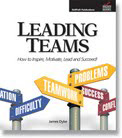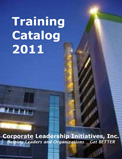This is all about “WHO you know” and how to make the most of your professional relationships in order to fuel your career success.
I’m following up last week’s issue with more helpful details because of a response I received from one of our readers.
He has experienced the same frustration that many of YOU have faced—to try and re-ignite a stalled career.
So this issue will expand on specific ways that you can take advantage of key relationships in your industry—to help further your professional development and career advancement.
Up Close and Personal
This entire issue is going to be illustrated with real life examples, because…
I am going to share principles that I have personally experienced and utilized.
Fasten your seat belt…here we go…
1. Get a clear vision of where you want to go.
One of my dearest friends is a successful employee development consultant (among many things!). I have known him since college. After we graduated, he immediately took the path of independent consulting. He created training content for a number of different training seminars focusing on topics related to greater effectiveness in the workplace. He built a substantial client base through hard work, consistent quality, and very satisfied customers.
Though I took a different career path initially—as an organizational insider—I admired what he did and considered doing the same thing at some later point in my career. Our friendship enabled me to have a very clear picture of the work he did—what it was like; what it required; and how to sustain it. It also enabled me eventually to say unequivocally, “That’s what I want to do!”
You need to have the same clarity of vision for what YOU want to do.
WHO #1: A person who is doing what YOU want to do someday—someone who can give you a realistic view of what that work entails.
2. Get a realistic sense of the landscape you want to inhabit.
Before you commit to your envisioned path, there are some very important questions for you to consider:
- Will your vision for the perfect career be a good fit for you?
- Do you have what it takes to succeed in this envisioned career?
- Can you match the quality of potential competitors in this arena?
- Will you have a realistic chance of success?
One of the most helpful things I did for my own career development was join a professional association related to my passion for leadership development. I started meeting and connecting with professionals serving non-profits and for-profit organizations: CEOs, upper-level managers, financial officers, board members, and entrepreneurs (including successful consultants who were running their own businesses). Over time, I became a regular seminar presenter at the annual conferences, sharing my personally-developed content with peers from many different organizations and receiving extremely positive responses.
Eventually, I had the good fortune of participating in a special professional development initiative sponsored by that same association. That experience enabled me to develop close relationships with a number of consultants, entrepreneurs, and instructors. Their feedback was consistent—I was told (1) I was eminently qualified to shift into a full-time consulting career; and (2) I had a very good prospect of succeeding.
At the same time, I was also creating leadership development initiatives for the non-profit organization I served. The training classes I created and curricularized were designed for paid staff, board members, and key volunteer leaders—some of whom were successful executives working for businesses in the surrounding community.
One particular volunteer leader was an up-and-comer executive with a Fortune 500 company. He told me, “Jim, the quality of your training classes is better than my MBA program!”
I also found myself providing informal coaching to executives in my classes who sought my advice for various challenges they were facing in their roles at work. They expressed deep appreciation for my perspective, ideas, and advice.
Remember the person I mentioned from point #1? At one point I confessed to him: “I’m not sure that the content I would create would be of high enough quality to be acceptable in the industry.” He literally LAUGHED OUT LOUD. He told me, “Jim…let me assure you…ANYTHING you create will be FAR SUPERIOR to the vast majority of training content in this industry!”
[NOTE: When I finally started working in the industry as an independent consultant and employee development facilitator…I found out for myself that what he told me was TRUE!]
It was these kinds of responses that gave me the affirmation I needed to pursue my vision for consulting and executive coaching…with realistic confidence of success.
WHO #2: People familiar with the career you envision and the industry it serves…who also know YOU very well…people you can trust to give you an honest assessment of your capability to succeed in the role you envision for yourself.
3. Learn what is required to launch.
My networking eventually led to a friendship with a savvy, experienced businessman—an entrepreneur who guided me through the process of “launching” my consulting practice. He showed me how to incorporate, get a local business license, and acquire appropriate corporate documents and accoutrements. Over time, I assembled most of the “Essential 7” including a tax expert; a friend to help me with IT; the business mentor I mentioned; my local banker and credit card transfer vendor; business insurance provider; and an accountant.
WHO #3: A business mentor to help you create your business entity.
4. Chart the path.
In the course of some volunteer work I had done with a non-profit, I met and connected with a well-known industry figure who was a highly successful consultant, author, and university professor. He emphasized the role of networking in order to find clients. After a frustratingly unproductive period of time (more about that later) I was able to connect with a large corporate training company that hired me to deliver their training content to their clients. So I was able to begin my consulting career as a contractor.
In the course of my work there, I found myself collaborating with another person like myself—a contractor trying to build his own practice and acquire his own clients. Unlike myself, he was a little farther down the road in this process, and was achieving a level of success that still eluded me. I was eager to learn from him. I asked him one of the most helpful questions any aspiring entrepreneur like myself can ask a successful professional:
How did you get where you are???
With his instructions in mind, I began a process of business development that eventually enabled me to acquire my own direct client base and leave low-paying contract work behind.
5. Set realistic goals and timelines.
It was also thanks to this person that I was committed to the long process of business development that was required at this stage of my consulting career. I knew from his experience that there would be no “overnight success.” So I was content to persevere and not give up or lose faith. That commitment paid off. Later, I learned that many entrepreneurs fail in their enterprise because they simply pack it in and stop trying. For example…
When I was working and traveling in Australia, I found myself in a Quantas transport bus seated next to a gray-haired businessman who looked to be my same age. We introduced ourselves and I discovered he was a retired oil industry executive who was now working as an independent consultant in that industry. When I revealed that I, too, was working as an independent consultant, he asked me how long I had been doing that. I told him, “About six years at this point.” He responded with a tone of admiration, “You’re a real success, then!” he said, “Because most people in your situation fail within the first two years.”
That conversation was an incredible boost to my confidence and to my continued commitment to the long process of business development I was pursuing.
Author and marketing entrepreneur Dory Clark explains the value of relationships with professionals who are succeeding at “what I want to do.” In a recent Harvard Business Review article, she wrote:
“Reach out to colleagues who have accomplished what you’d like to and push them to identify the markers along their paths.”
Career “markers” would include any of the various metrics for success that would provide measures for career progress:
- How long did it take to make your first six-figure sale?
- How many prospect meetings did that require?
- How many phone calls did you have to make, in order to land those meetings or contracts?
- How long before you were you able to replace your old organizational salary with your new enterprise income?
Having a realistic sense of time and scale helps you to keep your motivation strong and avoid giving up on your dream prematurely.
WHO #4: A person succeeding at what you want to do, who can teach you how to succeed and give you a realistic understanding of what it will take and how LONG it will take.
6. Build a strong support network.
Two of my friends played a very important long-term role in my success. They provided a strong and consistent source of encouragement, wisdom, and affirmation.
I already introduced you to one of these individuals in point #1 above. We stayed in contact with each other over the long period of time it took for me to achieve a comfortable level of success. We would speak occasionally over the phone—often when one of us was in an airport waiting for a flight. He was constantly encouraging me, especially with whatever level of success I was experiencing. “You’re doing well, Jim” he would tell me. “You are gaining ground in your business goals, and you are WAY ahead of where most others in your situation would be right now…trust me…I know…I’ve been there myself!”
I also had a dear friend who was a former colleague and client who would call me at least once a week to check in with me and find out how I was doing and feeling. I would give him a report on my business development sales calls. He was a constant source of encouragement. “Okay,” he would say, “You made 30 calls today; spoke directly with six people; and five of the six wanted your contact information. That’s a good percentage! You’re making progress! Keep it up! You’re headed in the right direction!”
He was there every step of the way, as I gradually increased my business development goals until I had reached my dreamed-off level of success.
Dory Clark reminds us that the right professional relationships can also provide us with a trusted sounding-board when needed—to keep us on the path to success. She writes:
“…surround yourself with trusted advisors and have them help you evaluate your progress and determine if it’s time to pivot. When you’re wrapped up in pursuing a particular goal, it’s not uncommon to lose perspective… That’s why a reality check from a trusted colleague is so necessary.”
WHO #5: People you know and trust who can provide hand-holding solace when needed; a course correction if required; and plenty of encouragement along the way.
These principles are a clear reminder that no one succeeds without help!
And that’s my passion—to help leaders and organizations get where they want to go!
So…stay tuned to this publication! I promise to continue to share insightful ideas, practical tools, and helpful advice to fuel your effectiveness and success.
Until next time… Yours for better leaders and better organizations,
Dr. Jim Dyke – “The Boss Doctor” ™ helping you to BE a better boss and to HAVE a better boss!







